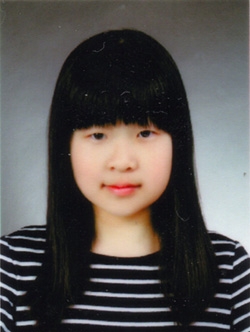
Reconsidering the co-relationship between dogs and human beings is critical since we are living with neighbors who have very contrary attitudes on them. The conflicting perceptions toward dogs are still behind the controversies and national movements regarding animal rights. Humans are posed with a grave dilemma: regard dogs as our companions or as a source of meat according to our carnivorous instincts.
South Korea’s practice of dog eating goes deep into the country’s history; evidence suggests that the custom of dog consumption may go back as far as one thousand years. The superstition that dog meat cools the body’s blood, chases away evil spirits, and lowers blood pressure served as justifications for why Koreans have the “right” to eat dogs. In accordance with the tradition, South Koreans celebrate Boknal: a certain period of time in summer where mass slaughter of dogs occur. Boknal is popular among the older generation because eating dog meat evokes childhood memories and resonates deeply with the beliefs that is entrenched in Korean society. In dog meat farms, one can see the dogs’ eyes filled with despair, and hear the desperate howling of dogs to break free from the confinements set by humans. The dogs anxiously wait for the preordained time of death to arrive.
Dog meat farms were popular until recently, with two million dogs in sale annually, until groups of people decided to unite and say “no” to the custom. South Korea is undergoing a shift in its societal trend with its younger generation actively advocating for the rights of dogs, and lending their voices on behalf of the voiceless ones. The collaborative effort among youths, adults, domestic and international animal rights organizations has brought down the number of dog-meat-selling restaurants in Seoul from 528 to 328—a whopping 40 percent decrease. The accomplishments rehashed talks about the necessity of eradicating dog meat farm industries by the PyeongChang 2018 Winter Games.
The societal momentum seems to be growing: petitions to shut down dog meat farms are being signed across the globe, and protests are garnering support from the general public and celebrities alike, and aid is gushing in from all corners of the country.
While the attempts to topple the long-standing tradition may be good news to some, it is bad news for dog meat farm owners and troubling even to some bystanders. It is easy to comprehend why the owners may be upset; after all, they made a living out of profits derived from the business. However, to understand the view of the bystanders, we need to evaluate the inalienable freedom people are born with, navigate through the boundary that separate “infringement of freedom” from “abuse of freedom,” and reflect upon biased attitudes — if there are any.
Countries have their own customs and characteristic lifestyles which deserve respect, under the assumption that those customs abide by fundamental rights, dignity, and decency. Similarly, shouldn’t the citizens be given the freedom of making their own choice about their lifestyle – about what to eat to what to advocate for However, we have to consider the limits of freedom—the extent of our freedoms. If, by exercising freedom we have been endowed with, we interfere with the rights of another being—in this case, the dogs—could that still be within the boundary of our freedom Some dismiss the argument by insisting that dogs have no rights; they are inferior in terms of intellect. This raises the question of what determines whether a being is deserving of rights or not. English philosopher Jeremy Bentham stated: “[t]he question
is not Can they reason nor, Can they talk but Can they suffer” Now, is it merely the intellect level one possesses or the ability to suffer the criteria for the endowment of rights
The following topic for debate is: what is the conceptual line of ethics that determines what kinds of animals are okay to eat In other words, is it more ethical to eat a cow than it is to eat a dog 150 billion livestock are slaughtered every year in inhumane ways; yet, there aren’t many public discussions to shut down slaughterhouses. It is odd considering the fact that livestock are equally capable of feeling pain. Pigs, cows, and chickens want to pursue happiness, live in an open area, and spend a life without the threats of human beings. We human beings are irrational and inconsistent with our thinking; we often let emotions rule over logic. In other words, we think with our hearts, rather than heads. Therefore, the boundary demarcating the the okay-to-eat animals from the not-okay-to-eat animals is arbitrary and subjective, for it is up to the person, based on his or her convictions and background.
The relationship between dogs and humans has evolved over the course of history, and the relationship has been largely molded by what culture humans embrace. In Western societies, dogs are regarded as lifelong companions we can go to for comfort. In Korean society, views on the role of dogs are polarized: some see it as a good source of meat, and others see it as an autonomous being with full rights. It is easy for the questions that have been raised in this article to dissipate into thin air; however, we must acknowledge the implications it harbor and constantly revisit them until an answer surfaces—hopefully.
Written by Yoojin Amy Cho
Korea International School (KIS)


